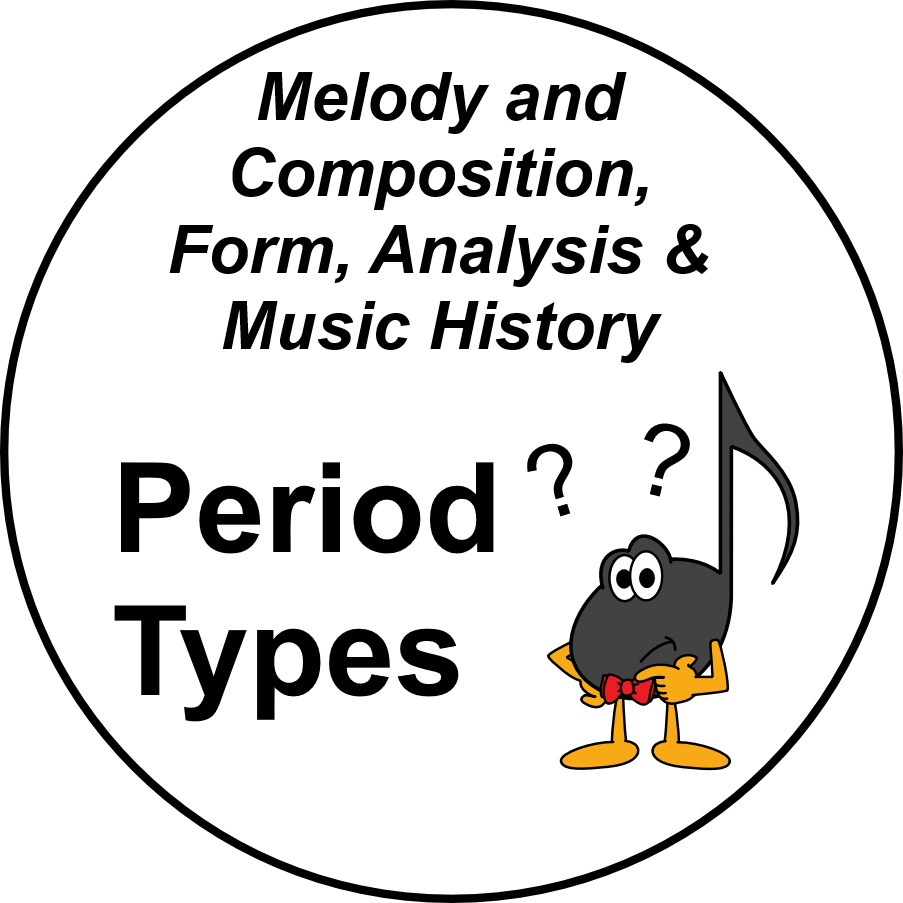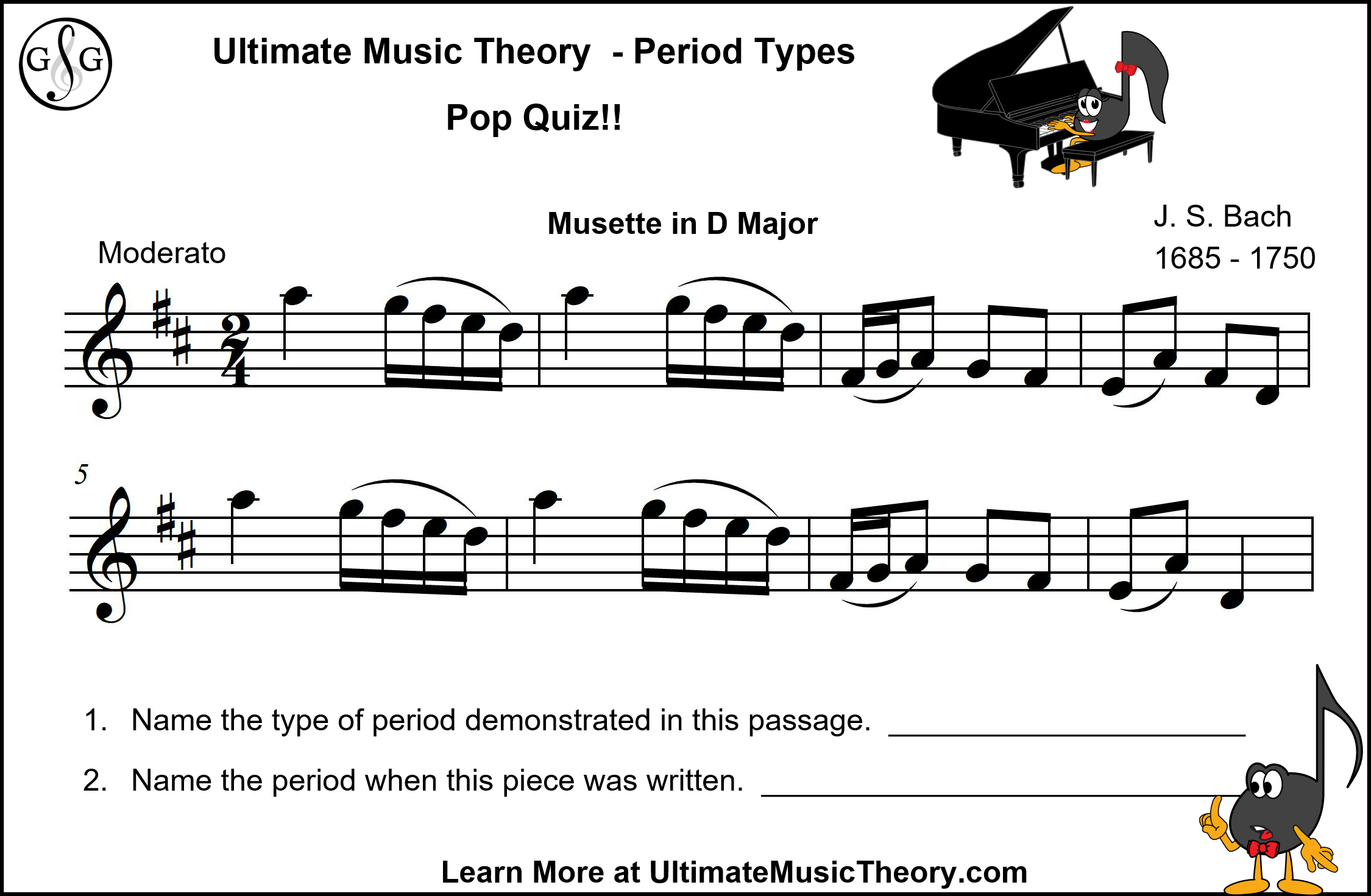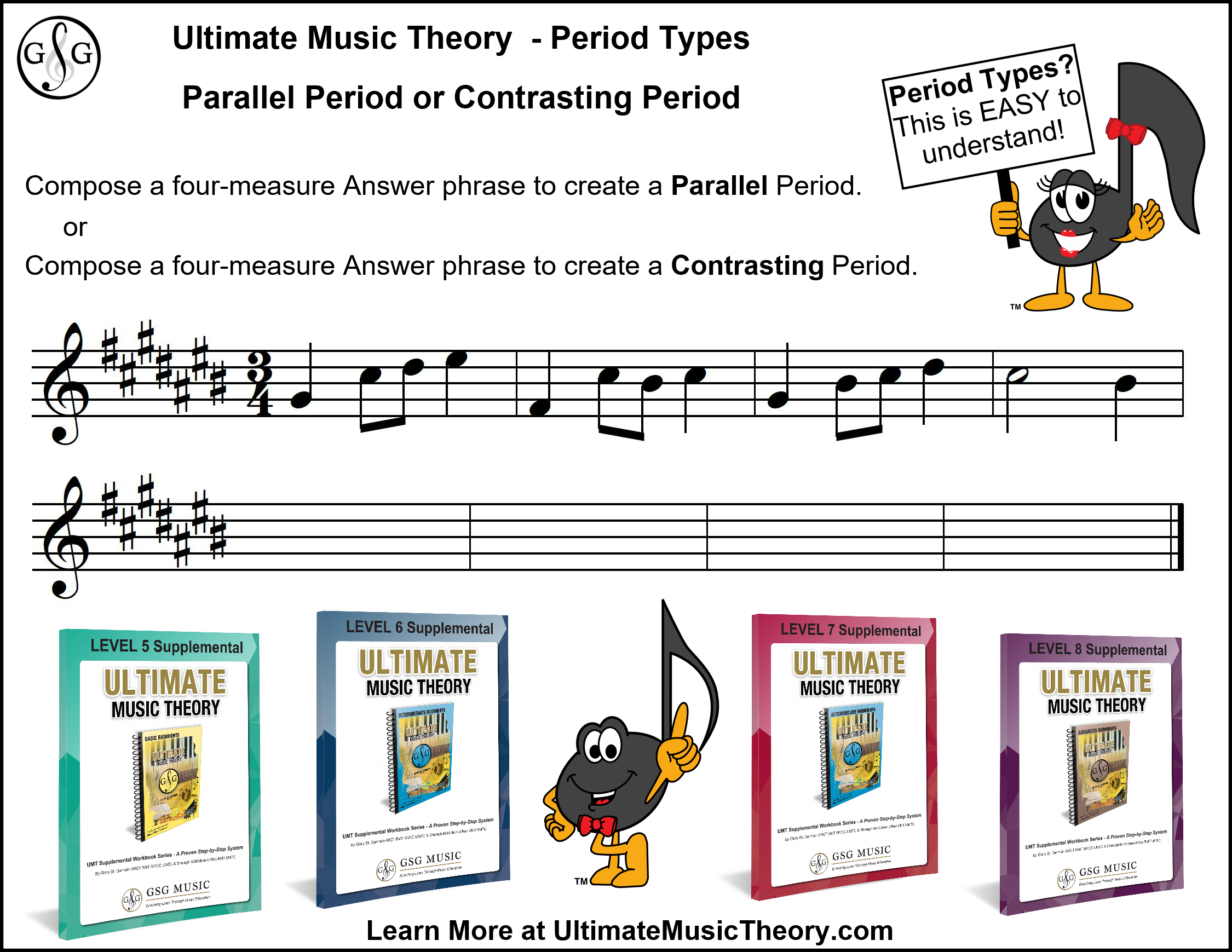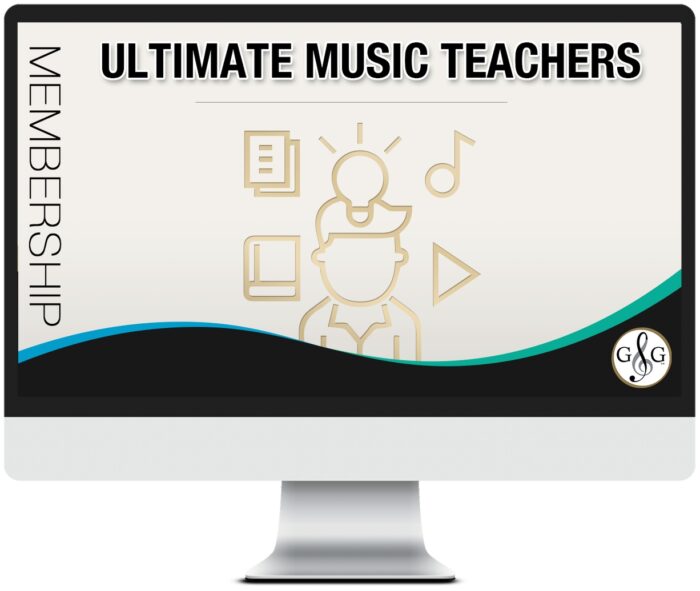Music Period Types

When Students analyse a piece of music, they are expected to be able to identify:
- Motion Types;
- Cadence Types;
- Piece (or Genre) Types;
- Music Period Types;
- Periods (Eras).
In this Blog, we are going to discuss the musical concept/term "Music Period Types".
What does a Music Period Type refer to? Is it different from the Period or Era of a composition or Composer?
In the RCM 2016 Edition Syllabus, we find the words "Parallel Period" and "Contrasting Period" in reference to "Composing a phrase for a given melodic opening" (the Melody and Composition Section of the Syllabus).
We also find "Period (era)" in reference to "identifying the period or era" for the works listed in the Music History Section of the Syllabus. This question could also be worded as "Identify the Period that this Composer belongs to" or "Identify the Period when this Composition was written".
Isn't it confusing when Music Theory talks about different concepts using the same words? (Harmonic Interval, Harmonic Scale, Harmonic Analysis... get the idea? LOL) So, let's get this figured out!
Music Period Types - Parallel Period or Contrasting Period?
Okay, I will admit it. I get confused too when there is more than one "concept" described using the same "term".
When the question reads "Compose an answer phrase to create a Parallel Period" or "Compose an answer phrase to create a Contrasting Period", that is pretty simple to understand.
Students learn about Parallel Periods in the LEVEL 5 Supplemental Workbook on Page 55 and in the LEVEL 6 Supplemental Workbook on Page 47.
Contrasting Periods are introduced in the LEVEL 7 Supplemental Workbook on Page 54.
In the LEVEL 8 Supplemental Workbook starting on Page 52, students review Parallel Periods and Contrasting Periods.
So, when you see a 4 measure phrase and you have to write a second phrase (in the blank 4 measure staff below the given phrase), you know that you are going to write either a phrase in a Parallel Period or a phrase in a Contrasting Period.
Period Types - Period or Era?
"Period" is also synonymous with "Era" when referring to Music History and Time Periods! In the PREP Level Supplemental Workbook on Pages 28 and 29, students learn about the:
- Medieval Period (around 500 to 1450);
- Renaissance Period (around 1450 to 1600);
- Baroque Period (around 1600 to 1750);
- Classical Period (around 1750 to 1825);
- Romantic Period (around 1825 to 1900);
- 20th and 21st Period (around 1900 to today).
In each of the above times in Music History, I could substitute the term "Era" for "Period".
Here's a little "Teaching Tip" that I use in my Studio. When my students have finished the "Beginner" Stage and are entering the "Elementary Stage" of learning, we use the Ultimate Music Theory Prep 1 Rudiments Workbook with the PREP LEVEL Supplemental Workbook.
I like to hold a Group Lesson (for my private lesson students) who are in the PREP LEVEL Supplemental Workbook. We complete Pages 28 and 29 together as a Group, watching music from different Periods (or Eras). I use this lesson as a Make-Up Lesson - students can either attend this lesson in the place of one of their private lessons - OR they can pay a Group Lesson fee to attend. (In my last Prep Level Group, I had 8 students participating!)
At the Group Lesson, all you need to do is to click "Free Resources" on the Ultimate Music Theory Website and you have access to dozens of safe-to-watch Videos that correspond with the Music History components in the Ultimate Music Theory Supplemental Series.
Period Types - Name the Type of Period
When an exam question reads "Name the type of period demonstrated in this passage", which of the different "Periods" does this refer to?
The key word here is "demonstrated" - which refers to performance.
The definition of "demonstrate" is to give a practical exhibition and explanation of how a machine, skill or craft works or is performed.
Performance involves the act of playing. So, when you PLAY the passage, what Period Types could you be performing in (or demonstrating)?
Well, you cannot describe a musical passage as being written using "Renaissance Period", but you could describe it as being written using "Parallel Period" or being written in "Contrasting Period" style.
Remind your Students that they may be asked to:
- write a passage in Parallel Period or in Contrasting Period;
- identify the type of period used in a given excerpt. (The Period Types used here would be Parallel or Contrasting);
- identify the Period associated with a Composer or a Composition. (The Period Types used here would be Medieval, Renaissance, Baroque, Classical, Romantic or Modern).
Teach your Students to read each question carefully and, when it doubt, try to reword (rephrase) the question to see what makes sense! Another trick is to use the question as part of the answer. Does it make sense? (Tip: If it doesn't, then you are looking at the wrong Period Type!)
Are you performing/writing it in a specific Period (Style, Format) or was it performed/written during a specific Period (Era, Time/Date)?
Take a look at the example below in the Period Types Pop Quiz.

Period Types - Pop Quiz Answers
Question #1 contains that key word "demonstrated". If you are still unsure of whether that is asking for the Period Type or the Period/Era, rephrase the answer:
"The type of period demonstrated in this passage is the Baroque Period". Hmm... can you demonstrate the Baroque Period?
"The type of period demonstrated in this passage is Parallel Period." Oh yes, THAT works!
Question #2 contains "was written". Let's rephrase that:
"This piece was written during the Parallel Period". No, you can write something IN Parallel Period, but it is not a "time period", so you cannot write something during the Parallel Period.
"This piece was written during the Baroque Period". Yes, Bach was a Composer who lived during the Baroque Period, so he wrote music during the Baroque Period.
I do hope that this helps you decipher this type of question. If you struggle with a type of question, please email me at Shelagh@UltimateMusicTheory.com and you just might find your question answered in a blog!
Ultimate Music Teachers Membership
♪ LEARN ♪ PLAN ♪ TEACH ♪ GROW
The One & ONLY Ultimate Music Teachers Membership
To Become A UMT PRO!
Your Success Path Starts Here - Go To TeachUMT.com Today!
Keep on Learning... With a Smile and a Song!
Shelagh McKibbon-U'Ren




Great explanation here of Music Period Types. Thanks Shelagh!!
Thank you Shelagh. That blog post was a refresher. I like the way you rephrased the answer to help clarify the difference. It is a matter of semantic and how the language is interpreted in its context.